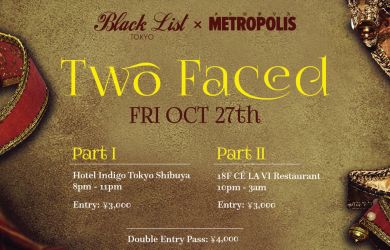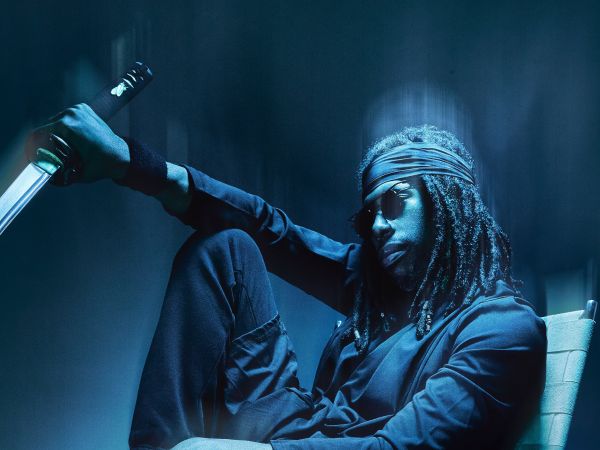
Flying Lotus has been at the forefront of the electronic music scene for over a decade. The Los Angeles-based producer, rapper and filmmaker has collaborated with artists like Kendrick Lamar, Thundercat and Anderson. Paak and often incorporates elements of Japanese culture by sampling anime soundtracks and Japanese vocalists.
As he prepares for his upcoming appearance at Sonic Mania, Flying Lotus talks with Metropolis about his latest projects—including an upcoming film—and Japan’s influence on his creativity.
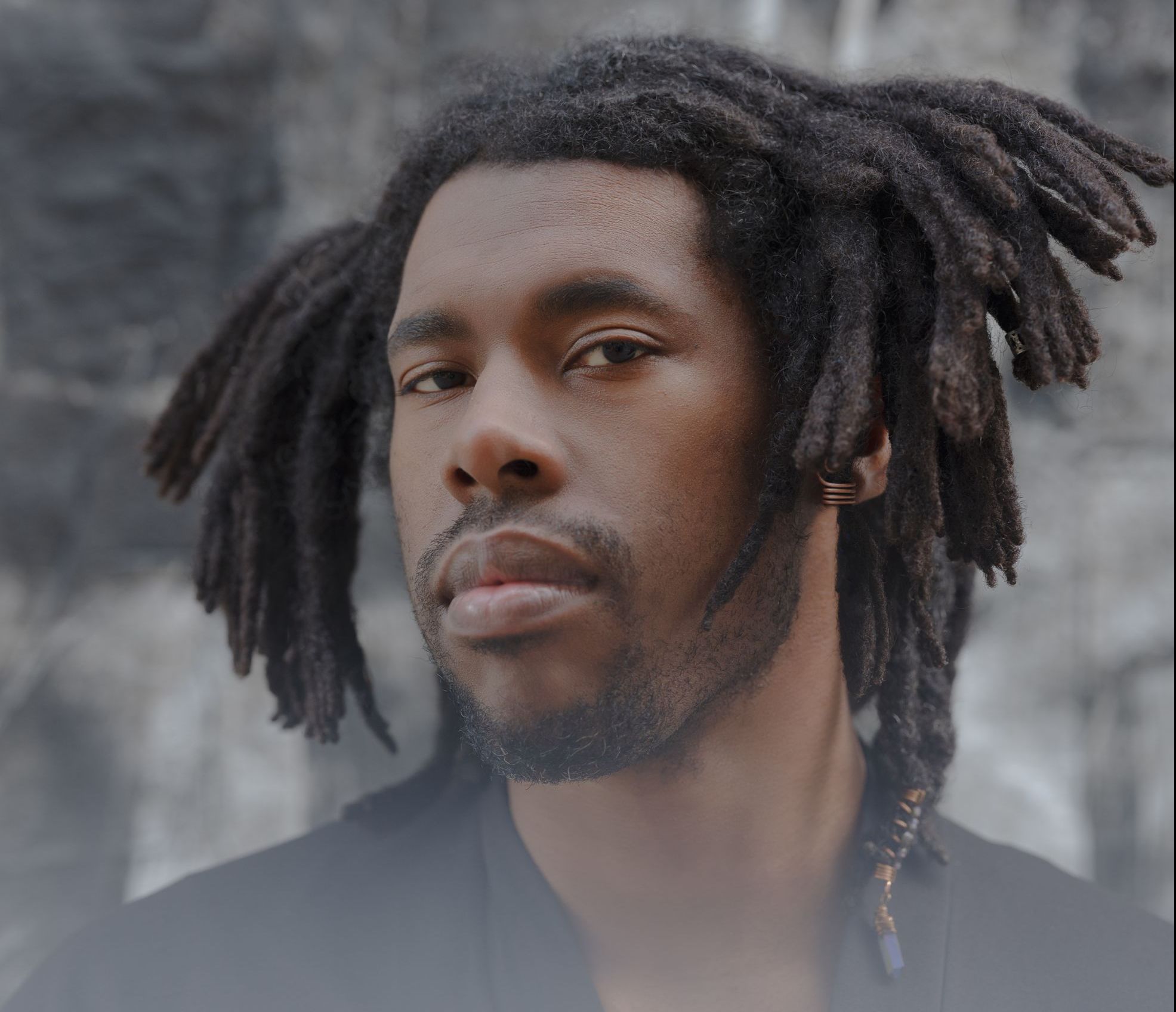
Metropolis: Thinking back to the first time you traveled to Japan, what were your first impressions of the country, and did anything surprise you?
Flying Lotus: Oh, it was weird. It was 1993 and I was about 10 years old. I don’t think hip-hop had really taken off in Japan yet. It was very strange. It was a little racist—kids didn’t know what to do with me.
I wanted to play with kids out there, and they were like, “What the f**** is this thing?” Looking at me like I’m just crazy. But, it’s a lot different now. Black culture is permeating all aspects of their universe over there and it’s really nice to see the difference.
M: Do you recall any funny stories or experiences from your time here with Thundercat?
FL: I think any of our experiences has always just been looking at people looking at us like we’re crazy. Being awake past the time we should, jet-lagged, running around at night. It’s always an interesting thing knowing how much we stand out there, but at the same time, you see how much the hip-hop culture has influenced streetwear and street culture, and it’s really nice.
M: Your music often incorporates elements of Japanese culture, such as sampling anime soundtracks and featuring Japanese vocalists. Can you talk about the inspiration behind these choices and how they contribute to the overall aesthetic of your music?
FL: Japanese culture has always been a part of my arsenal for creativity. I think I fell in love with the yakuza films from the early 2000s, the Takeshi Kitano stuff. As far as music, Ryuichi Sakamoto was a big influence on me, as well as a lot of the video game music from Yoko Kanno. The list goes on and on.
M: You’ve said that one of your favorite anime is “Cowboy Bebop.” What do you admire about the show, and how has it influenced your music or art?
FL: I think the spirit of “Cowboy Bebop” is what’s so great. It feels like anything can happen in a way, right? They can go to these different worlds and show you this interesting vast galaxy, almost like Star Wars in a way. You also have the music that’s killin’, the jeet kune do fighting and they reference a lot of cool stuff. You know, they did a whole episode that’s kind of like Alien, you didn’t expect them to know the series. The characters are interesting, it’s well-directed. I think it just hits all the beats.
M: Your record label, Brainfeeder, has been instrumental in promoting experimental and boundary pushing music. Are there any Japanese artists on your radar?
FL: Yeah, we’re actually signing an artist from there. I’m not really supposed to say because we haven’t announced it yet, but we have a pretty cool signing coming from Japan really soon… Well, I could probably say because I think it’s coming out pretty soon. We’re signing Hakushi Hasegawa. Hakushi Hasegawa is really dope.
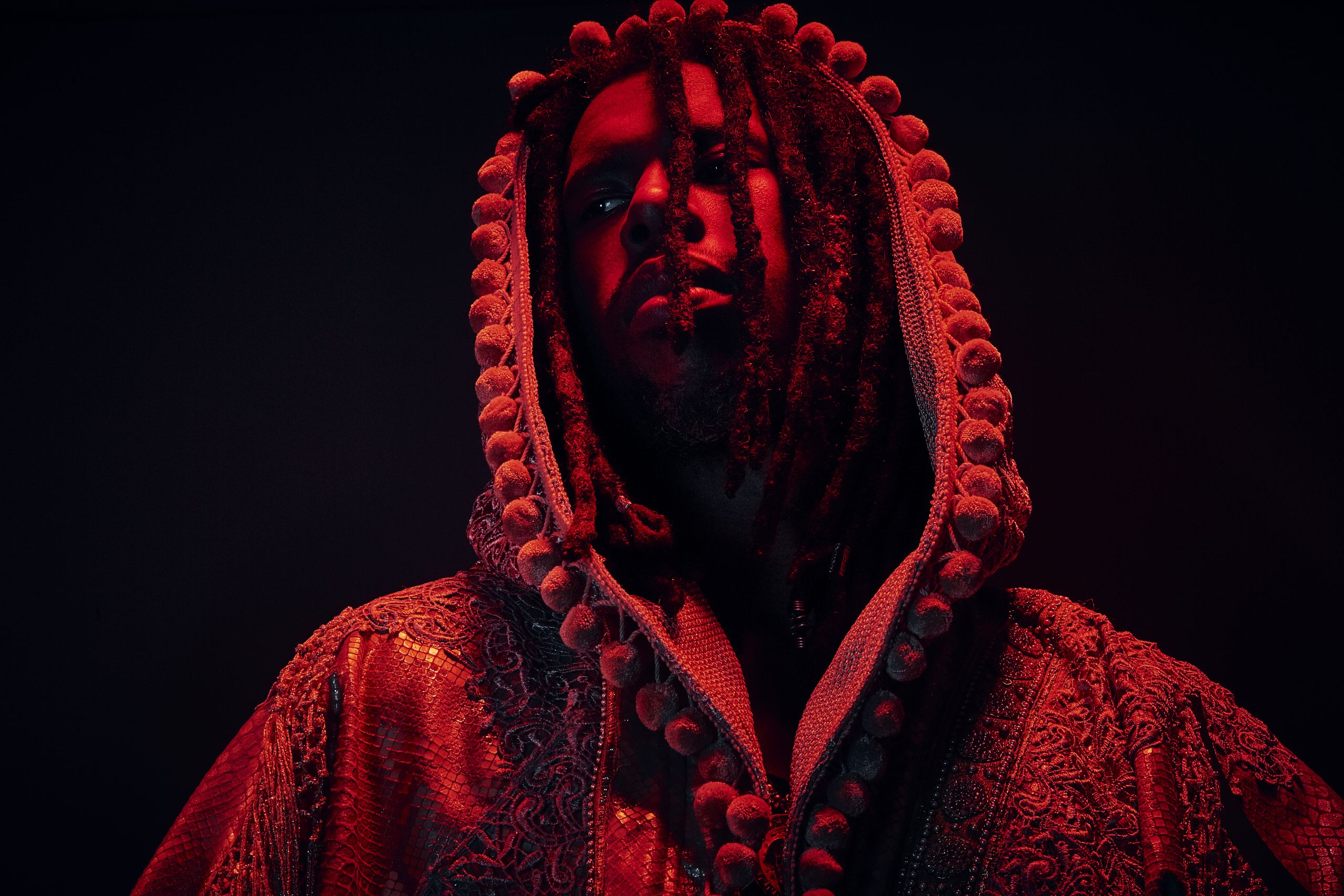
M: You’ve mentioned before that you’re a fan of Japanese horror movies. What are some of your favorites?
FL: Hausu was really good. Ring was good. Cure is really good. Kiyoshi Kurosawa stuff and obviously, Shinya Tsukamoto, he’s a huge influence. Meatball Machine and the real trippy stuff from that era, where it was films going straight to DVD—they were all good. All of that weird early 2000s stuff that just hit the world by storm.
When it comes to J-horror, it feels like they care about suspense. It wasn’t necessarily about crazy jump scares or whatever, it was more about building a really crazy atmosphere. That is something that we really got into after watching it. So well done. It eventually came to be a part of something American audiences just stole for their own. That tension got really popular.
M: You played a significant role in creating “Yasuke.” What was your creative process like in bringing this story to life?
FL: They brought me in early with that, thankfully. They asked some of my thoughts on what kind of direction we should go in. My biggest thought to them was I didn’t want to go around saying things that aren’t true unless we go all the way. Let’s show what really happened and then let’s make up more stuff, versus, let’s embellish the facts.
I didn’t want to make a show about Yasuke being a slave. At the same time, it’s weird when you do show a samurai, because in a way, the samurai is in service to a lord, you know. I didn’t want to do the whole show on him serving another master. That was kind of my biggest feedback and influence on what to stay away from, the whole slavery, Black trauma element that we see so much. I wanted to bring in another side of it.
M: How did you balance paying homage to Japanese culture while incorporating your style into the show?
FL: It was hard. To get the tone was a hard thing to do. I think some people really dug it, others didn’t gel with it, but that’s to be expected. But I think it was really cool and it was a lot of fun to open up the door for other Black anime projects.
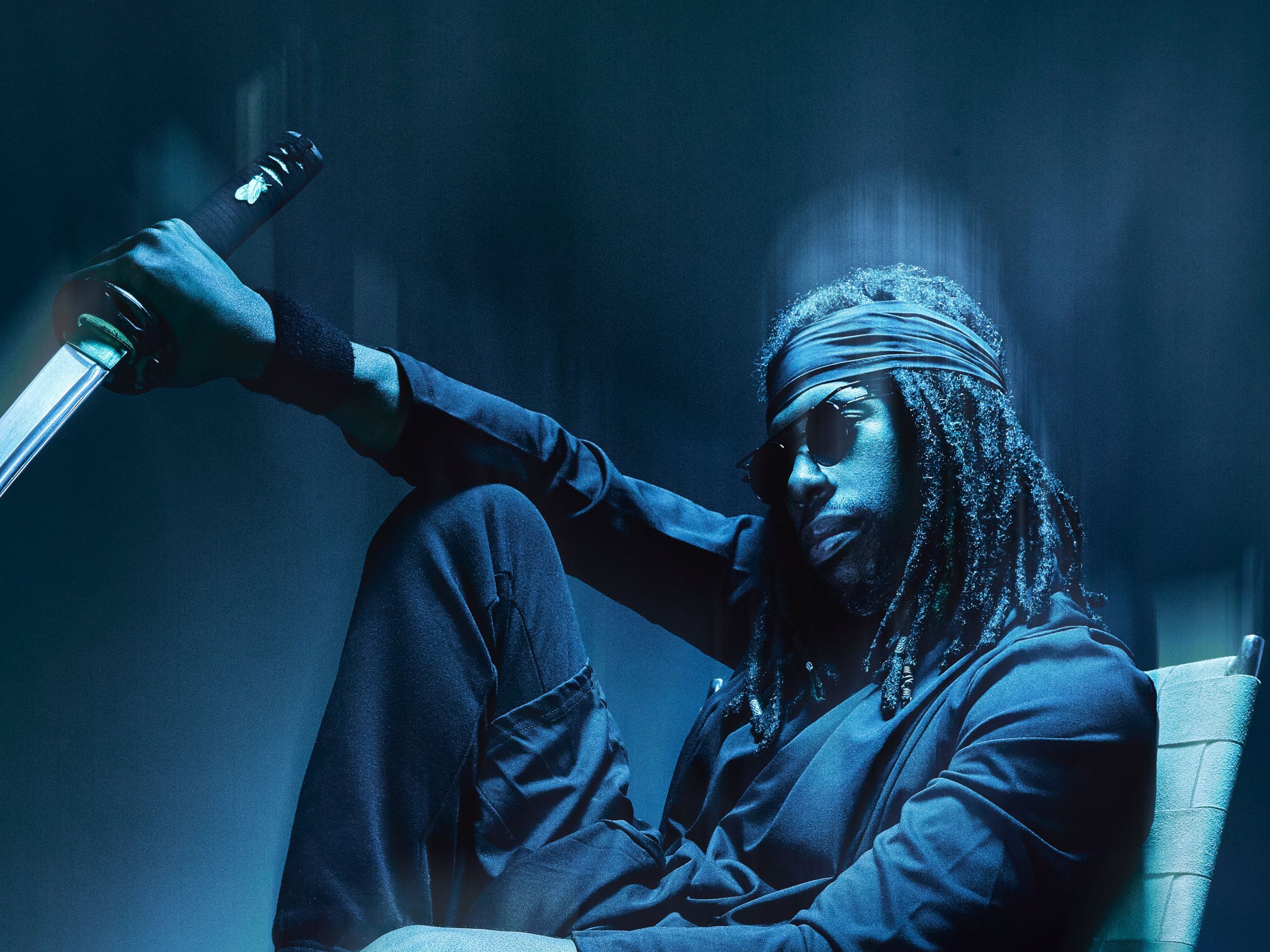
M: You also curated the soundtrack. Can you talk about the process of creating music specifically for an anime, and how that differs from your usual approach to music production?
FL: That was fun, more than anything. They let me kind of do my thing and were very respectful of my process. When it comes to the Japanese way of doing things, they have their process, but they were as accommodating as they could be, so I was really grateful for that.
M: The intersection of technology and music is a prominent aspect of Japanese culture, from synthesizers to virtual idols. How do you perceive the relationship between technology and music in Japan, and has it influenced your approach to music production?
FL: I think ignoring all these possibilities and all these cool tools is a mistake. When I was first coming up, people would talk shit about me because I was using a computer and Ableton. I heard it all before. I don’t care what anyone thinks about the process. It’s all about the result. The tools are just tools. You don’t get mad at someone for using a hammer, it’s about what they do with it. But obviously, we’re not here for some one-click music creation thing, that’s not cool.
I will figure out a way to get creative with all this stuff. If you don’t go for it you’re just going to be left behind. You can go be one of those purists. Go ahead. It’s cool. You can die on that hill. I’m always going to be trying to look forward and push to the next thing.
M: Speaking of the next thing, with all the AI-generated songs coming out, if you had a choice of an AI generated voice to use, who would you pick?
FL: I want to make a new character. I don’t want to make the same people; I like to make a new voice that we haven’t heard before. It shouldn’t just be trying to be Drake, trying to be Snoop or whoever. It’s an opportunity to think outside the box. I find it to be more inspiring to just be like, “Yo, I can be a whole new person tomorrow and this is their perspective and what they sound like.” Instead of trying to be Travis Scott and all that shit, I think that’s weird.
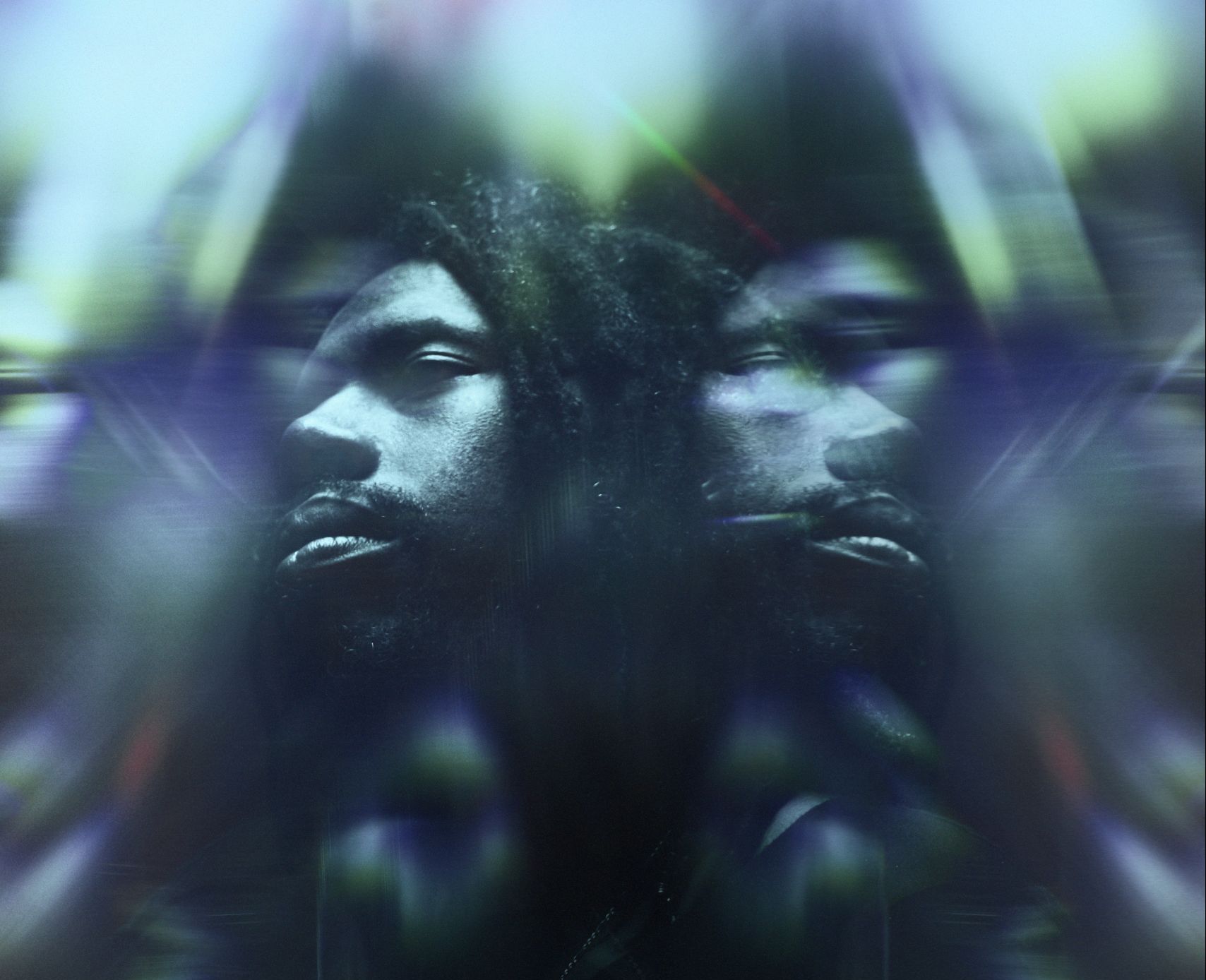
M: Your next movie Ash is currently in pre-production. Can you share any information on the film or any influences that have helped you with your vision?
A lot of films have been inspiring to me all across the board. Sci-fi movies like your classics, Alien, and whatnot. But I think a thing that people might not realize or think out of the gate is that there are a lot of video games being influential in this process, which I didn’t expect either. A lot of “Resident Evil,” “Silent Hill,” things of that nature, leak through into this horror movie, which I think is so cool.
M: Sadly, the world lost Ryuichi Sakamoto last month. What kind of influence did he have in your life when it comes to creating music?
FL: It was weird because I was working on music with him right before he passed away. I mean, it’s just kind of extra trippy to just be in the thick of it. But as far as his influence on me personally, I always just love the silence. That’s what I always say. He had a perspective of adding silence to the music and was not afraid of the quiet stuff. When he was really young, he was really flashy and a showman. I think over time he became more thoughtful about his music; he considered everything and its purpose. I feel like I’m getting more into that world of thinking now. Where it’s less about trying to impress, and it’s more about saying the most honest thing you can at the moment.






